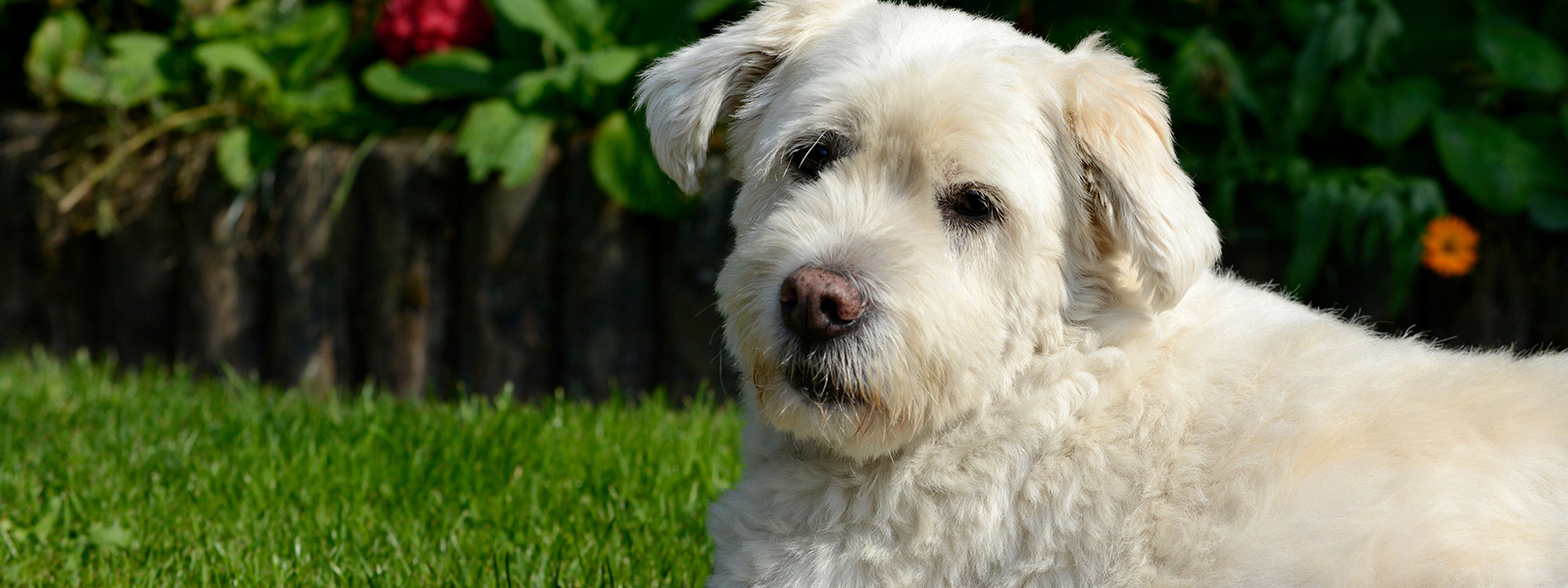Once dogs are over 7 years old, they are the human equivalent of middle age and are considered seniors. Dogs at this age require a little more care than their younger counterparts and you may notice them ‘slowing down’ or changes in their lifestyle and behavioural patterns. Whilst this change of speed is common in senior animals, if can also be an indication of a health problem.
We recommend bringing your senior dog in for twice yearly health checks as at this age, illnesses can develop and health can deteriorate much faster than in a younger dog. Below are some of the most common health conditions in senior dogs which need to be monitored and treated through regular visits to the vet.
Dental disease
Untreated dental disease is a common problem in senior dogs which often goes unnoticed by owners who mistakenly assume that if their pet can still eat well, the condition of their teeth must be okay. In most cases, the animal has simply learnt to chew differently to avoid aggravating the condition. Bringing your pet in for regular complimentary dental check-ups at our clinic ensure dental disease is caught and treated early.
Chronic health conditions
We recommend annual blood and urine tests for animals over ten years old to screen for age related diseases such as diabetes, kidney disease, liver disease and tumours. With many of these conditions, the animal may not show symptoms until the disease is well advanced and they are in a significant amount of pain, so screening for them with a blood and urine test is a quick, easy and pain free way to pick up on these conditions early.
Arthritis
Arthritis is a common (and painful) disease for senior dogs but it can be easily managed with changes at home and various medications. Common signs of arthritis include a slower walking pace, stiffness when getting up, or lower activity levels.
Lumps and bumps
Skin tumours come with the territory of being a senior dog. Although most lumps aren’t anything to worry about, some can be serious and have a significant impact on your dog’s quality of life. All lumps should be checked out by a veterinarian to ensure they are not cancerous.
Other Related Services
For more information on related services, please visit the pages below.
Puppy Vet ServicesAdult Dog Vet ServicesDog & Puppy VaccinationsDog & Puppy Desexing




